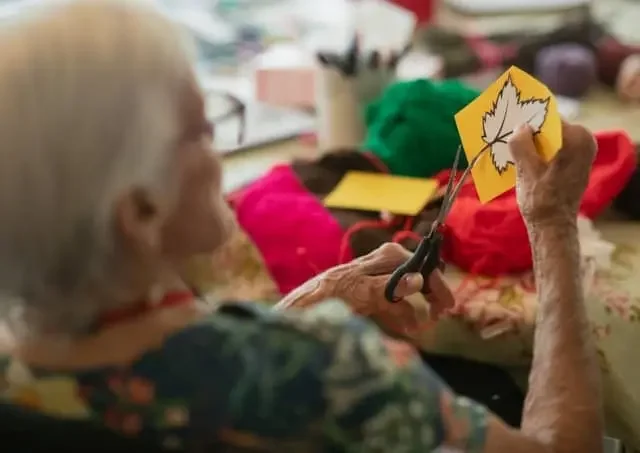Speech Therapy for Progressive Disease Management in South Florida
Progressive diseases can affect speech, memory, swallowing, and communication, but that doesn’t mean you have to lose your voice or independence.
Nina offers in-home and telehealth speech therapy for adults with progressive neurological conditions, helping patients maintain communication skills, adapt to changes, and preserve quality of life for as long as possible.
Her care is personalized, evidence-based, and built around what matters most to each client and their family.
Start Progressive Disease Management and Therapy with Nina
Complete this quick form and Nina will contact you within 24 hours to discuss your needs.
What Is Progressive Disease Management in Speech Therapy?
Progressive diseases gradually change the way a person communicates, thinks, and eats. Speech therapy can slow decline, support independence, and empower caregivers to navigate those changes with confidence.
Nina works with adults facing conditions like:
Multiple Sclerosis (MS)
Huntington’s disease
Other degenerative neurological disorders
Therapy is proactive, adaptive, and designed to preserve function, safety, and dignity at every stage.
Common Challenges Nina Addresses
Word-finding difficulties or trouble forming sentences
Voice fading during conversations
Difficulty swallowing pills, liquids, or food
Communication breakdowns between patient and caregiver
Memory and attention issues affecting daily life
Navigating loss of speech with AAC tools
Nina adapts therapy as needs change, from strengthening speech and voice to training in assistive communication or managing swallowing risks. Toghether, we’ll work on mindfulness activities to help unlock a better quality of life.
What Therapy Includes
Each therapy plan is tailored to the condition and individual goals. Services may include:
Voice therapy (SPEAKOUT!) to improve loudness, clarity, and confidence
Cognitive-communication support for memory, problem-solving, and attention
Swallowing therapy to maintain safety and nutrition
AAC evaluation and training as speech becomes limited
Functional communication practice for daily routines
Caregiver training and education to support communication and feeding
Therapy happens in the comfort of home, where skills are practiced in the real-life environment they’re used in.
Why In-Home Care Makes a Difference
Progressive diseases often make traveling to a clinic difficult, and noisy or unfamiliar environments can be overwhelming. Nina provides private, personalized speech therapy in your home or online, where patients are more relaxed and families can be involved.
This approach allows for:
Immediate use of therapy in daily life
Coordination with meals, routines, and care schedules
Family coaching during real-time situations
Comfort and continuity as needs evolve
Stages of Progressive Disease & How Speech Therapy Adapts
Progressive neurological conditions change over time, but your communication, safety, and independence can still be supported at every stage.
Nina’s approach is not a one-time plan.
It evolves with you, your goals, and your daily needs.
Below is a clear, compassionate look at how therapy adapts across the course of the disease, whether you are living with Parkinson’s disease, ALS, Primary Progressive Aphasia (PPA), dementia, MS, or another neurodegenerative condition.
Early Stage: Strengthening Communication & Preparing for the Future
In the early phase, symptoms may be mild: soft speech, occasional word-finding issues, fatigue, or subtle swallowing changes. Early intervention is powerful. We work to:
Strengthen your voice, articulation, or breath support
Improve clarity, loudness, and conversational confidence
Build a strong foundation of communication strategies
Train cognitive-communication skills (memory, attention, planning)
Teach early compensatory tools to increase awareness
Begin gentle, non-stressful planning for long-term communication (including optional early-stage AAC exploration)
Goal: Maintain independence and preserve function for as long as possible.
Middle Stage: Adapting Communication for Daily Life
As symptoms progress, communication often becomes more effortful. This is where the therapy plan becomes highly tailored and functional. We focus on:
Teaching alternative communication methods (gesture, writing, texting, voice-assistive tools)
Improving word-finding using evidence-based cueing systems
Training caregivers in supportive communication styles
Practicing real-life tasks: ordering food, calling a doctor, making a shopping list, navigating appointments
Implementing memory supports and structured routines
Addressing swallowing changes to keep meals safe and enjoyable
Goal: Reduce breakdowns, preserve dignity, and maximize success in daily living.
Late Stage: Preserving Dignity, Comfort & Connection
In later stages, communication may be significantly limited, and safety concerns become more prominent. Therapy shifts toward what matters most: comfort, connection, and maintaining your identity.
We support you and your family through:
Safe feeding strategies and clear dysphagia recommendations
AAC systems such as communication boards, speech-generating apps, or partner-assisted scanning
Training caregivers to interpret nonverbal signals
Creating personalized communication pages with meaningful words, photos, and routines
Comfort-based communication that focuses on presence, choice-making, and emotional support
Goal: Help you stay connected with the people you love, however communication changes.
Nina’s Philosophy Across All Stages
No matter the phase of the disease, therapy is always:
Person-centered — built around your values, personality, and culture
Evidence-based — informed by modern research in neurodegenerative care
Functional — aimed at real-world improvements, not worksheets
Collaborative — involving caregivers, medical teams, and community supports
Flexible — delivered in-home or via telehealth based on your energy and mobility
Your voice matters. Whether it’s spoken, written, typed, pictured, or expressed through AAC, Nina’s job is to help you keep using it.
Serving Palm Beach County with Compassionate, Skilled Care
Nina provides adult speech therapy and supports caregivers throughout:
Call For a Free Consultation
Living with a progressive disease doesn’t mean giving up communication, connection, or quality of life. With the right support, you can adapt, stay engaged, and plan for what’s next — with confidence.
Call (561) 797-2343 or fill out the Contact Form to schedule your free consultation.
You still have a voice. Nina’s here to help you use it — for as long and as fully as possible.
Frequently Asked Questions: Speech Therapy for Progressive Disease Management
What is progressive disease management in speech therapy?
Progressive disease management refers to speech-language therapy designed for people living with conditions that gradually worsen over time, such as Parkinson’s, ALS, Primary Progressive Aphasia (PPA), or dementia.
The goal isn’t to cure the condition, but to help individuals:
Maintain communication skills as long as possible
Adapt to changing needs
Preserve dignity and independence
Stay connected to family and community
Reduce safety risks with swallowing or memory decline
What conditions does Nina support?
Nina provides in-home speech therapy for adults with:
Amyotrophic Lateral Sclerosis (ALS)
Primary Progressive Aphasia (PPA)
Alzheimer’s disease and related dementias
Multiple Sclerosis (MS)
Huntington’s disease
Other neurodegenerative or progressive conditions
Each care plan is customized to reflect the individual’s diagnosis, goals, and stage of progression.
When should speech therapy start?
As early as possible.
Starting therapy early — even if symptoms are mild — helps preserve function and gives clients and caregivers more tools to manage the journey ahead. In conditions like Parkinson’s or PPA, early intervention is key to extending quality of life and communication ability.
What happens during therapy?
Therapy depends on the client’s diagnosis and needs, but may include:
Voice training to strengthen volume and clarity (SPEAKOUT!-style)
Cognitive-communication therapy for memory, attention, and reasoning
Swallowing therapy to reduce choking risk and maintain nutrition
AAC (Augmentative & Alternative Communication) support as speech becomes more limited
Functional communication strategies for everyday use
Caregiver training to support communication and feeding at home
Nina continuously adjusts the plan as the person’s needs evolve.
Can therapy really help with progressive conditions?
Yes. While the condition itself may continue to progress, therapy can help:
Slow the rate of decline
Extend functional independence
Improve safety (especially for swallowing)
Reduce frustration for both patients and caregivers
Prepare for future communication needs
Improve emotional and social quality of life
Therapy is not just about speech — it’s about preserving control and connection.
What if the person is already nonverbal or severely impaired?
Even when verbal speech is no longer possible, Nina can help individuals:
Communicate using gestures, writing, or yes/no systems
Transition to AAC tools (like speech-generating apps or communication boards)
Use partner-assisted strategies for daily interaction
Make choices and express needs using low- or high-tech methods
She also works closely with caregivers to ensure communication remains respectful, efficient, and person-centered.
Do you help with swallowing issues?
Yes. Nina is trained in dysphagia (swallowing) therapy and can support patients with:
Difficulty swallowing pills, food, or liquid
Coughing or choking during meals
Risk of aspiration pneumonia
Transitioning to modified diets or feeding support
Swallowing safety is a major focus in progressive disease care, and therapy can reduce risks while preserving dignity at mealtime.
Do you involve family members in care?
Absolutely. Nina works closely with caregivers and family throughout the therapy process, offering:
Education about the condition and communication strategies
Tools to support memory, safety, and interaction
Emotional support for managing changing roles
Guidance on when to introduce AAC, modified diets, or alternative routines
Empowering caregivers is just as important as supporting the patient.
Do you offer in-home therapy?
Yes. Nina provides all therapy in the comfort of your home, which is especially important for individuals with mobility limitations or fatigue from neurological illness.
In-home care makes therapy:
More practical and consistent
Easier for caregivers to participate
More personalized and familiar
Less stressful for clients
What areas do you serve?
Whether working on speech clarity, language skills, or safe swallowing, Nina brings therapy directly to you — making progress easier in the comfort of your own home. She provides adult speech therapy services in:
Palm Beach and surrounding areas
How do I get started?
Nina offers a free phone consultation to learn about your needs and recommend a therapy plan.
Call (561) 797-2343 or fill out the Contact Form to schedule.
Start your journey today
If you or a loved one is living with communication or swallowing challenges, Nina offers skilled, compassionate care to help you move forward. Fill out the form below, and we’ll be in touch within 24 hours to discuss your needs and set up your first appointment.







